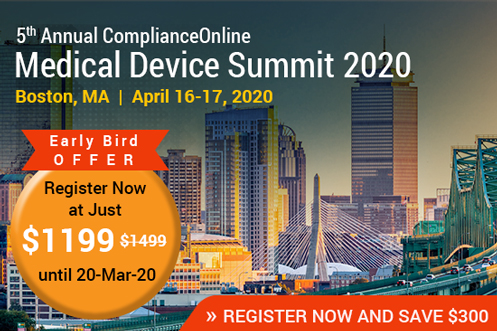The objective of the Seminar is to teach participants how to use the current ISO 10993-1 and FDA standards to establish a Biological safety evaluation plan, including how to document and implement their plan. Participants will not only learn how to assess their device for Biological risks but also understand when testing is not necessary. We will also cover how to properly document these findings and fill out a Biological evaluation report.
Why Should You Attend:
All medical devices that have direct or indirect contact with the human body require an assessment of the Biocompatibility of the materials used to manufacture the device, with the test schedule depending on the nature and duration of body contact. Domestic and international regulatory bodies emphasize the use of risk-based approaches to assess Biocompatibility.
Who will Benefit:
- Anyone with a desire to be up to date with the current state of the art of Biocompatibility assessment.
- Medical device, pharmaceutical, and combination product start up and established companies.
In-Person Seminar going Virtual with increased learner satisfaction.
Yes, attend this seminar from anywhere. We are making it real and more interactive – Here's a sneak peek:Our enhanced delivery process and technology provides you an immersive experience and will allow you to access:
- The real-time and live presentation as in in-person events
- Private chat for company-specific conversation – the same as you would get in an in-person seminar
- Live workshop activities
- Live Q&A during the event and offline Q&A assistance after the event
- Certification
July 19, 2022 (9:00 AM to 1:00 PM PDT)
- Risk-based approach to Biocompatibility evaluation strategy ·
- Overview of current ISO 10993-1 and collateral standards Biocompatibility testing guidelines, costs, and turnaround times.
- Chemical characterization, leachables and extractables (L&E) testing, and toxicology assessments.
- Alternative testing to costly and time-consuming long-term animal testing.

Mike Colvin Ph.D
Medical Device Technical Adviser/Consultant
Mike has over 30 years’ experience developing medical devices and systems. Over his career he has been in charge of safety & efficacy testing and Regulatory & Clinical strategies. He has also served as a technical advisor/consultant in the medical device industry for over 25 years, giving him exposure to both large medical device companies and startups.
Mike has taught college for over 25 years and has contributed/participated on many domestic and international technical committees. He holds a Ph.D. in Physical Chemistry from the University of Southern California/California Institute of Technology.
Frequently Asked Questions:
- Does the physical/chemical testing need to be performed GLP?
- For medical devices that use common components, can you test individual components for all biocompatibility endpoints, and the entire final device only for cytotoxicity?
- Can you please clarify the temperature recommended for extraction for 72hrs? Is it 37C or 50C?
- Do you always have to test extractables AND leachable, or are there scenarios where extractables only are acceptable?
- Is it necessary to always consult with a Toxicologist, or can a Material Scientist/SME do the assessment?
- Can you outline a BEP for a blood bag system that has components with limited exposure (at body temperature) and prolonged exposure (at 4C)?
- Are you going to cover particle testing later? If not, can you just briefly talk about what that would look like/resources where we can learn more?
- The FDA has been requesting leachable testing even if extractable testing passes. Is this a new development?
- What are your thoughts about PTT testing for hemocompatibility testing? The assay seems highly variable.






